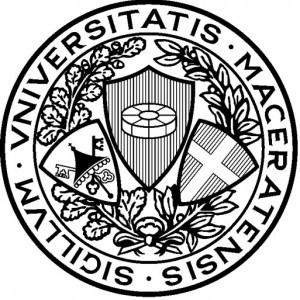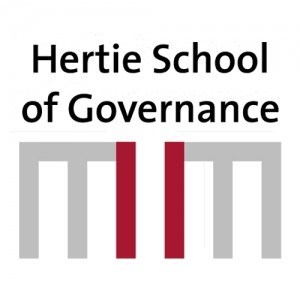Photos of university / #ouranu
Studying international relations at ANU means students will be analyzing the very best app of its kind in Australia and graduating with one of the most respected degrees within this field on the planet. The Master of International Relations is the sole international relations program in Australia to focus on the Asia Pacific, also motivates them to participate with emerging ideas and methods from around our region throughout facetoface seminars together with globally-recognised pros.
The Bachelor of International Relations at the Australian National University offers students a comprehensive understanding of global politics, international organizations, diplomacy, and security studies. This program is designed to equip students with the analytical skills and knowledge necessary to navigate complex international issues, from conflict resolution and human rights to environmental sustainability and international trade. Throughout the course, students explore the historical development of international relations, key theories, and major global challenges facing nations today. The curriculum includes a diverse range of subjects such as international political economy, global governance, foreign policy analysis, conflict and peace studies, and regional studies covering areas like Asia-Pacific, Europe, and the Middle East. Students are encouraged to develop critical thinking, research, and communication skills through rigorous coursework, interactive seminars, and practical simulations. The program also emphasizes the importance of cultural awareness and ethical considerations in international affairs, preparing graduates for careers in government, international organizations, the non-profit sector, and private industry. Opportunities for internships and collaborative projects with diplomatic missions and international NGOs are integral parts of the program, providing real-world experience and networking opportunities. The Bachelor of International Relations aims to produce informed, globally-minded graduates capable of addressing the diplomatic, economic, and security challenges of the modern world, fostering positive change through a deep understanding of international systems and relations.
Curriculum requirements for the Bachelor of International Relations at The Australian National University typically include completing a total of 144 units over the duration of the program. Students are required to undertake core courses that provide foundational knowledge in international relations, foreign policy, global politics, and the international system. These core courses often encompass topics such as International Politics, International Relations Theory, and Australia and the Changing World, which introduce students to key concepts and frameworks.
In addition to the core courses, students choose from a wide array of elective subjects that allow specialization in areas like security studies, international development, regional studies, and diplomatic practice. Electives are designed to develop analytical skills, understanding of international law, global governance, and intercultural communication. Students are encouraged to undertake practical components such as internships or study abroad programs to gain real-world experience and enhance their employability.
The program emphasizes research skills and critical thinking through coursework that may include research projects, essays, and presentations. Students are typically required to complete a capstone project or a thesis in their final year, offering an opportunity to conduct in-depth research on a specific international relations topic under academic supervision.
Language proficiency requirements may be specified depending on the track or electives chosen, with some students opting to study additional languages relevant to their areas of interest. Throughout the program, students are expected to engage with contemporary global issues, participate in seminars, and collaborate on team projects that foster intercultural understanding and professional skills.
The program also promotes ethical understanding and responsible global citizenship, with certain courses dedicated to exploring ethical dilemmas and humanitarian issues. Overall, the Bachelor of International Relations aims to prepare graduates for careers in diplomacy, international organizations, government agencies, NGOs, or further academic study in related fields.
The Australian National University (ANU) offers various financial options to support students enrolled in its International Relations programs. Domestic students may be eligible for a range of scholarships, bursaries, and government assistance schemes, such as the Youth Allowance and Austudy Payment, which help cover tuition fees and living expenses. International students are often required to pay full tuition fees, but they can access scholarships such as the ANU International Scholarships, which provide partial or full fee waivers based on academic merit and other criteria. Additionally, students can explore external funding sources including government-sponsored scholarships from their home countries, private organizations, and international agencies. ANU also provides information on student loans and payment plans to facilitate financial planning. The university recommends early application for financial aid and encourages students to research all available funding opportunities to manage the costs associated with studying International Relations. While specific details about the exact amount of financial aid available for this particular program are not publicly specified, the broader financial support framework at ANU aims to assist students in minimizing financial barriers and focusing on their academic and professional development. Furthermore, students are advised to consult the ANU Financial Support Office and the official website regularly to stay updated on new scholarships, deadlines, and financial assistance programs tailored for International Relations students. Overall, the university’s commitment to accessible education is reflected in its diverse financial support options, designed to make studying at ANU feasible and affordable for a wide range of students.
The Bachelor of International Relations at The Australian National University is designed to provide students with a comprehensive understanding of the complex dynamics that shape international affairs. The program offers a robust curriculum that combines theoretical foundations with practical insights into global politics, diplomacy, international economics, security studies, and regional relations. Students explore a wide range of issues including international conflicts, human rights, environmental challenges, and global governance, preparing them for careers in government, international organizations, NGOs, or the private sector.
The program emphasizes critical thinking, analytical skills, and effective communication, fostering an understanding of cultural diversity and global interdependence. Students have opportunities to engage in collaborative projects, internships, and research initiatives that enhance their practical experience and professional networks. The curriculum is regularly updated to reflect current international developments and policy challenges, ensuring graduates are well-equipped to contribute meaningfully to international discourse.
The university's location in Canberra, the capital city of Australia, provides students with unique access to diplomatic missions, government agencies, and international organizations, enriching their learning environment. The program also encourages students to undertake study abroad exchanges, gaining firsthand experience in different cultural and political contexts. With a focus on critical inquiry and ethical considerations, the Bachelor of International Relations aims to develop globally-minded graduates capable of navigating and influencing the complex international landscape. Postgraduate opportunities further develop expertise for those interested in careers in diplomacy, international security, policy analysis, or academia. Overall, this program equips students with the knowledge, skills, and networks necessary to succeed in a rapidly changing global environment.










